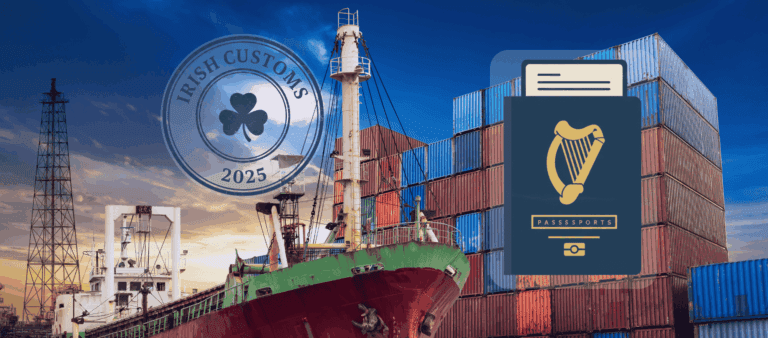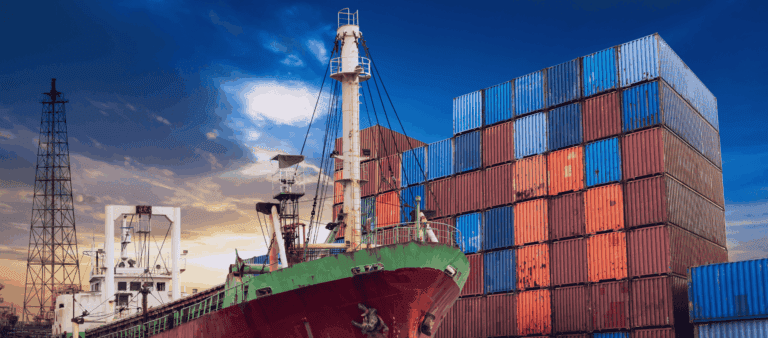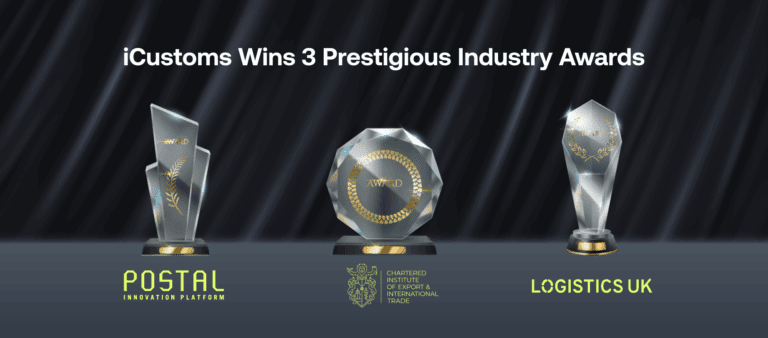How Hauliers Are Cutting Compliance Delays with AI
- John Hall
- Customs Specialist at iCustoms.ai
What if delays in compliance are the biggest challenge in your supply chain, rather than traffic or fuel prices?
In cross-border trading, hauliers are constantly under pressure to fulfil delivery deadlines, adhere to legal regulations, and maintain seamless operations.
They have to deal with changing transportation regulations, complex customs processes, and the growing expense of non-compliance. Even a small mistake can impede progress and result in fines, irate customers, and eroded confidence.
Let’s talk about artificial intelligence. AI is changing how transport businesses handle compliance. Without sacrificing speed or efficiency, artificial intelligence (AI) is assisting hauliers in avoiding costly delays and staying completely within the law by automating document verification and instantly identifying regulatory risks.
“Over 40% of shipments are delayed, making timely and accurate compliance more critical than ever.”
The haulage industry's compliance challenge
It is important to understand how complicated compliance can be for hauliers before delving into how AI is assisting.
Transportation regulations vary depending on the vehicle type, region, and cargo. For instance, in the UK, hauliers are required to abide by regulations set forth by the Department for Transport (DfT) and the Driver and Vehicle Standards Agency (DVSA).
Then there is international shipment, which adds more levels of border checks, emissions zones, driver rest regulations, and customs paperwork.
Common compliance issues include:
- Errors in paperwork: Inspection delays are caused by inaccurate or insufficient documentation.
- Vehicle inspections: Roadside stoppages may be caused by mechanical issues or neglected safety inspections.
- Customs delays: Particularly at borders where new customs declarations and safety checks have become necessary, such as the UK-EU route.
- Updates on regulations: keeping up with legislation and enforcement priorities that are always changing.
How does AI help hauliers cut compliance delays?
AI is helpful in these aspects for hauliers:
Document automation and real-time verification
Manual processing of documents, including waybills, customs forms, and driver’s licenses, is one of the main causes of delays. At checkpoints or during audits, even small errors might result in major bottlenecks.
These days, AI-powered systems automatically scan, validate, and cross-check documents against regulatory databases using optical character recognition (OCR) and natural language processing (NLP).
This includes:
- Verifying driver’s licenses, permits, and credentials
- Looking for anomalies in documents
- Using past data to pre-fill customs forms
- Pointing out errors or missed details prior to submission
By automating document handling and identifying problems early, hauliers have reduced customs clearance times up to 30%.
Automate your customs and transport documents with iCustoms’ IDP!
Trade compliance and customs clearance
Customs compliance is now more important than ever in the wake of Brexit and the escalating tensions around international trade. An incomplete or inaccurate customs declaration may cause delays of several days.
This procedure is being streamlined by AI tools by:
- Automatically assigning HS codes to products
- Extracting precise data from packing lists and commercial invoices
- Finding duty exemptions or advantageous trade deals
- Cross-referencing restricted parties and sanctions lists
Regulatory updates and risk scoring
Regulations about risk scoring and dynamic regulatory updates are always changing, particularly in the context of global trade. A rule that was in effect last month may no longer be so, or it may be subject to new sanctions. It’s practically difficult to keep up manually.
However, with AI-driven trade compliance tools, you can stay updated and compliant. These technologies alert hauliers to updates that affect their operations and occasionally even provide new protocols or instructional resources.
Vehicle compliance and predictive maintenance
If a vehicle isn’t up to safety requirements, mechanical failures can lead to failed roadside inspections and delays. AI is transforming traditional maintenance routines into proactive ones that are either reactive or based on set intervals.
Artificial intelligence (AI)-enabled modern telematics systems examine real-time sensor data from trucks to forecast when parts like engines, brakes, or exhaust systems might fail. Fleet managers can arrange maintenance before a breakdown or a vehicle becomes non-compliant by using these solutions to notify them far in advance.
In addition to minimising unscheduled downtime, our predictive strategy guarantees that vehicles continue to meet DVSA or MOT testing requirements.
Integration of AI tools with existing ERP and TMS systems
AI’s compatibility with the technologies hauliers already use on a daily basis, such as Enterprise Resource Planning (ERP) software and Transport Management System (TMS), is one of its many advantages.
These systems serve as the logistics command centers, assisting hauliers with route planning, load tracking, and paperwork management. Artificial Intelligence (AI) enhances existing systems rather than replacing them.
Here’s how:
Eliminate manual processes
AI can extract compliance data, like customs information, shipment updates, and regulatory changes, directly into your TMS or ERP, saving your team the trouble of manually transferring data or double-checking everything.
All compliance info in one place
Hauliers frequently need to switch between tools to determine whether they are adhering to compliance requirements. You get a single dashboard that displays all of the information you require in one location when AI is integrated into your TMS or ERP.
Smoother workflows, fewer delays
AI can handle repetitive activities that slow you down, such as identifying outdated driver documents or verifying forms for missing information, so you can concentrate on the real work of transporting products on time.
Find problems before they occur
You already have the TMS or ERP to help you plan the best paths and keep things moving forward. However, AI also makes it possible to identify any compliance concerns early on, such as new customs regulations or vehicle inspections, so you can address them before they become an issue.
To put it short, integrating AI into your ERP or TMS greatly reduces the stress associated with compliance.
Wrapping up
Delays in compliance are serious problems for hauliers. However, AI eliminates the need for paperwork mistakes, unforeseen regulatory changes, and vehicle problems to slow you down. AI-powered solutions can monitor compliance, automate document inspections, and even assist in identifying maintenance requirements before they become issues.
Looking for such a system? iCustoms is your best ally to increase productivity, maintain compliance, and cut delays with AI.
You may also like:
Simplify Customs with our Powerful Customs Management Software
Automate declarations, track shipments, & ensure compliance.
About iCustoms
Simplify Customs with our Powerful Customs Management Software
Automate declarations, track shipments, & ensure compliance.



